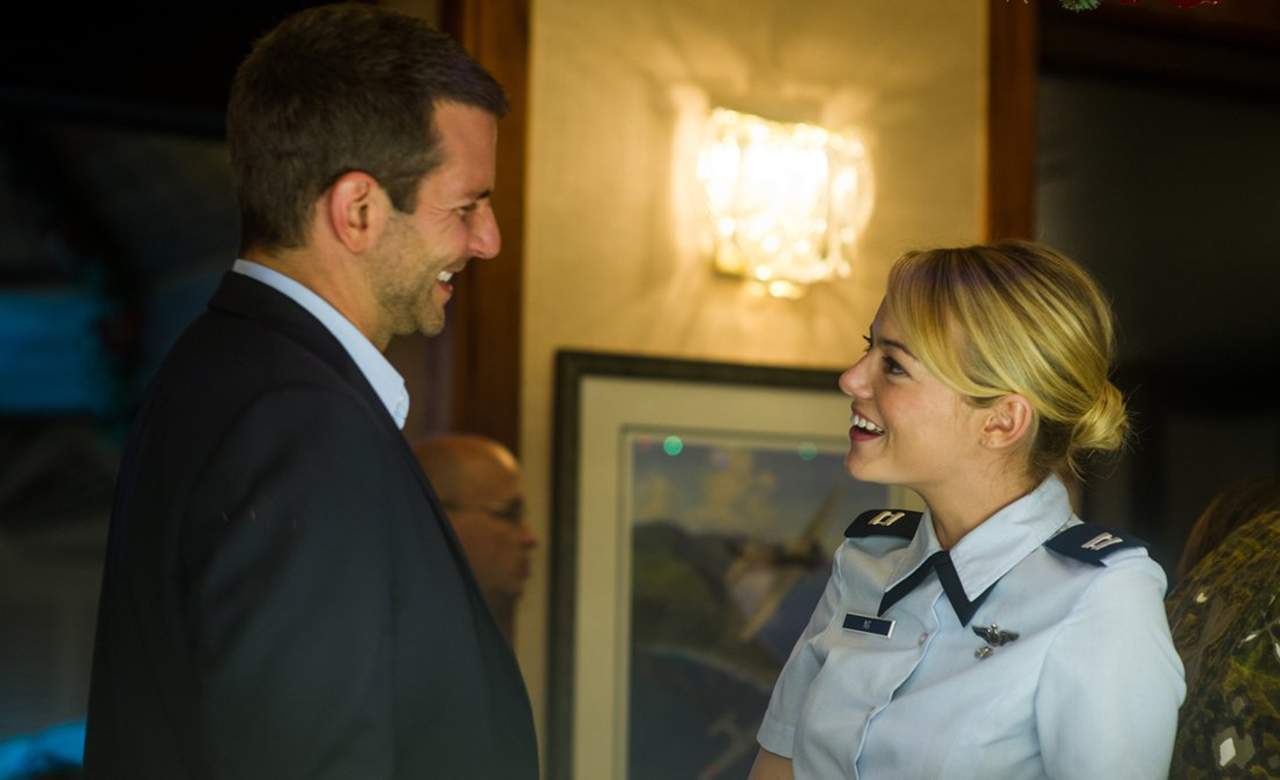Aloha
Aloha is a movie that hasn't met a cliche it doesn't love.
Overview
There’s no nice way to put it: Aloha is a mess. It's not a hot mess, despite its disorganised array of attractive actors and its scenic setting. It's not a fun mess, because it rarely entertains. Instead, it's the worst kind of cinematic clutter: an indulgent mess.
Aloha is a movie that hasn't met a cliche it doesn't love — and given that its writer/director, Cameron Crowe, has met many in his past efforts (such as Jerry Maguire, Elizabethtown and We Bought a Zoo), that's saying something. It's also a feature with so little to show or say outside of its rehash of the filmmaker's usual plotline — down-and-out man is refreshed by the attention and affection of a younger woman — that it spends a fair chunk of time referencing its title in dialogue, songs and even on fridge magnets.
The film's main tale focuses on former NASA worker turned defence contractor Brian Gilcrest (Bradley Cooper), who returns to the Hawaii base where he once spent the best years of his career. He's tasked with negotiating permission from the locals to move US military operations to another site, which links in with the shady work he's doing for an eccentric billionaire (Bill Murray). While there, he also confronts old issues with his ex-flame (Rachel McAdams), who's struggling with marital problems with her strong, silent-type husband (John Krasinski). Brian's every move is shadowed by an eager fighter pilot, Allison Ng (Emma Stone), assigned as his handler — and of course, soon they're flirting with becoming more than colleagues.
As overly sincere as it is sprawling, Aloha exists to trade in Crowe's usual brand of rom-com optimism and self-belief, love conquering all mid-life crises and all that. Sometimes, the filmmaker doing what he does best results in flashes of corny charm, as glimpsed in the banter between Cooper and Stone, and a dance shared by the latter with Murray. Too often, however, he's content with trifles such as featuring a rotating handheld shot around Cooper, Stone and McAdams, or making a joke out of Cooper and Krasinski communicating without words, or shoehorning in a space hacking threat as the movie's climax.
This seesawing between too-cute, too-contrived and too-clumsy might have been excusable if the characters immersed in such shoddy plots and shots remotely resembled people, other than physically, that is. Alas, the figures on screen never transcend their status as the idealised imaginings of a dreamer, nor do the corresponding performances. Saying that Stone steals the show is a reflection of her natural pep and flair, not of her ability to repeat the reasoning for her playing someone with partial Hawaiian heritage. Of her co-stars, Cooper is in stock-standard mode and Murray is barely glimpsed, alongside the rest of the high-profile cast, Alec Baldwin and Danny McBride included.
Even the one element that typically, reliably stands out in Crowe's films — his use of music, as seen in Say Anything and Almost Famous, for example — doesn't hit the mark. When a movie has to resort to Murray announcing "everybody wants to rule the world" moments before the track is heard, it's hard to get swept away in the emotion of the scene. It's hard to get swept away in Aloha altogether; in fact, you might just want to sweep its mess from your memory.





